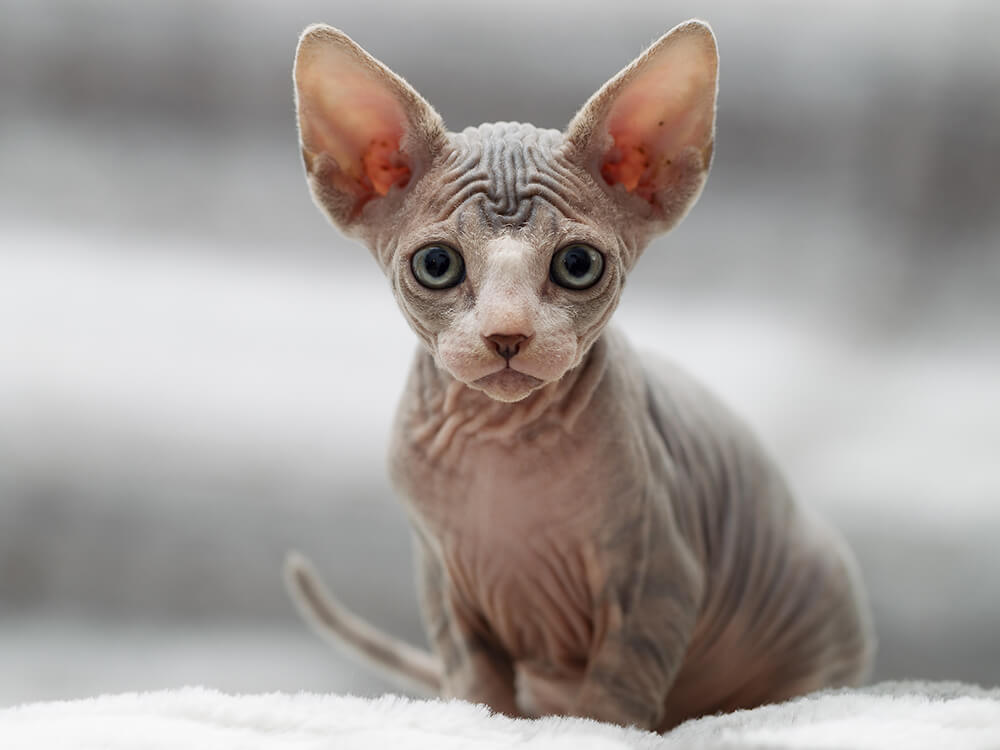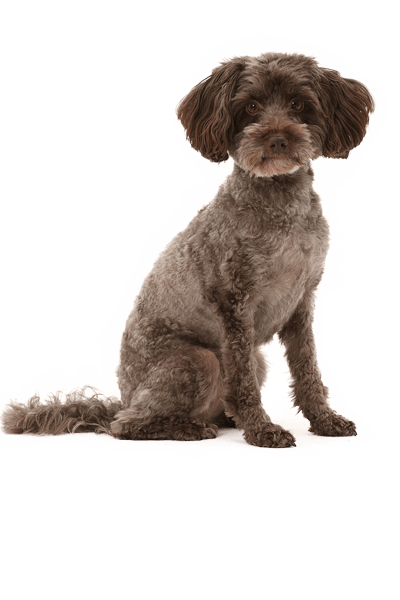Not the breed you're looking for?
Click Here
Featured Story

In smaller apartments, the right feline companion can make a world of difference. Explore 14 small cat breeds tailored for cosy living, and let your … [Read More...]
The Schnoodle is a hybrid dog developed by crossing a Schnauzer and Poodle. Since it is a mixed breed, it inherits the appearance and traits of both its parents. It is one of the most popular designer dog breeds because of its smart and fun-loving nature. Schnoodles are eager to please, so training is easy enough for a first-time dog owner.
Are you planning to buy a Schnoodle? Here is a brief background of this playful hybrid dog
The Schnoodle is a new breed developed in the 1980s due to the increased popularity of Poodle mixes. It is a cross between a Schnauzer and a Poodle. Although popular, the Schnoodle is not as famous as the Goldendoodle, Labradoodle, Cockapoo, and Maltipoo among others.
Since the Schnoodle is a designer breed, major kennel clubs including The Kennel Club in the UK do not recognise it as a full-fledge breed. However, some kennel clubs accept crossbreeds for performance events such as obedience and agility trials.
The Schnoodle is a medium-size dog, weighing 13 to 75 pounds and standing 25 to 66 centimetres, depending on which type of Poodle (Miniature, Toy, or Standard). With that said, the gene pool can produce a wide variety of Schnoodle types, but most common Schnoodle designer dogs are either Toy or Miniature types of either parent breed. The Schnoodle is fined-boned with strong legs – a reflection of its athletic form.
When it comes to appearance, one consistent feature of the Schnoodle is its nicely proportioned head that is inherited from both parent breeds. Schnoodles’ muzzles are short and moderately concave, tapering to a large and dark coloured nose. They have eyes that are dark coloured and round-shaped, which is framed by an abundance of eyebrows. Some Schnoodles have long ears that are set high atop the head.
The coat can vary depending on which parent breed it takes after, since Schnauzers have rough-wiry coats, while Poodles have soft and curled coats. However, most Schnoodles wear coats that fall between. The colours include grey, brown, black, white, apricot, black and tan, black and white, and sable.
Dog grooming depends on the type of coat. The Schnauzer-type coat has a low grooming requirement compared to the Poodle-type. Basically, most Schnoodles will require brushing at least twice a week. Some owners hire professional groomers every two months to make the Schnoodle appear smart and adorable. Like any dog, dental care, ear care and nail trimming (among others) are crucial to maintaining its healthy status.
The Schnoodle can inherit either of the parent breed’s temperament. Schnauzers are loyal and extremely protective, Poodles are highly intelligent and outgoing. Often, the ideal Schnoodle will inherit the best characteristics of the parents but a little less wilful than the Schnauzer and not as excitable as the Poodle.
Schnoodles do not like to be separated from their owners and will suffer from separation anxiety. It is best to have at least one member stay at home most times or get the Schnoodle enrolled in a doggy daycare. The Schnoodle is playful and entertaining. It is a natural watchdog, thanks to its Schnauzer parent, and will only bark when strangers are about.
The Schnoodle is smart and a quick learner, thanks to its Poodle parentage. It can be a bit headstrong, so housetraining may be a little challenging but nothing that a steady hand and consistent training can’t manage. It adores interactive games and greatly excels at dog sports like obedience and agility trials.
These dogs are known for being incredible family pets, especially around children. However, the Schnoodle’s interaction with kids must be supervised, so it does not end up getting too rowdy. When it is socialised early, this designer dog breed gets along well with other dogs and the family cats. However, they will not think twice about chasing smaller animals, so care should be taken.
A typical serving for an adult Schnoodle is 3/4 to 1 cup of high-quality dry dog food in a 24 hour period. Dogs must be fed with specific levels of nutrients (protein, fats, vitamins and minerals) that meet their dietary requirements. Typical daily calorie needs of adult Schnoodle weighing 40 pounds.
It is indeed challenging to determine the correct serving size for each meal since it will mostly depend on different factors, such as the dog’s age, size, metabolic rate, the amount of exercise they get and more. If you don’t think you can pull off a balanced nutrition for your Schnoodle alone, then it is best to seek advice from a veterinarian.
Anyone planning on buying a designer dog like the Schnoodle needs to be aware of potential health conditions. Although the average Schnoodle is generally healthy than any of its parent breeds, it is still prone to suffer from some health disorders including Progressive Retinal Atrophy, Cataracts, Legg-Calve-Perthes Disease, Patellar Luxation, Epilepsy, Diabetes Mellitus, Addison’s Disease, and Gastric Torsion or Bloat.
When it comes to activity level, the Schnoodle is quite active and as such, will require plenty of exercises daily. Its high level of intelligence also means it needs lots of mental stimulation. Give the Schnoodle at least 60 minutes of daily exercise and as much off the lead time as possible. Just make sure that this is done within a very secure area or the Schnoodle will soon escape.
If you are set on raising a Schnoodle, you need to prepare £500-£900 for a well-bred pedigree puppy. To ensure it stays healthy at whatever age, you will need to feed your dog high quality dog food and treats, which can set you back £20-£30 a month. You would also need to spend on dog accessories such as leads, collars, food bowls, crates, beds, and toys. The combined initial cost for these things is estimated at £200.
As to healthcare you need to be prepared in case your dog suddenly falls ill or gets into an accident. You can offset some bills if you get a pet insurance, which can range from £25 for a time-limited cover up to £45 for a lifetime one. These prices vary depending on your dog’s health, age, the type of cover you choose, and whether it has pre-existing conditions.
Other outgoings to consider are veterinary expenses that may not be included in a pet insurance coverage such as vaccinations, routine checks, neutering or spaying, and annual boosters, which can have a combined cost of £900 annually. Overall, you will be budgeting £70-£110 a month for recurring expenses, depending on the type of insurance cover you choose for your dog.

Are you sure the Schnoodle is the best breed for you? Take the Pet Breed Selector Quiz to find your perfect breed match.
Dog Breed Selector QuizStill not unsure about the Schnoodle? Check out Pet Finder for other suggested breeds suitable to your lifestyle and personality.